Written in 1995, “Pantapon Rose” refers to an uptown prostitute in Manhattan who sometimes sold the opium alkaloid Pantapon to junkies in need of a fix. Burroughs put her in “Naked Lunch.”
Shooting From the Lip
Having Read Your Email, ‘I will not reply / to yours …’ per Wislawa Szymborska.
‘Dread’ by Florian Vetsch
A poem changes with each reading. This one was not written about the catastrophe in Ukraine. But it could have been. It is translated from the German original and extracted from the book ‘Tanger Trance,’ which was published in 2010 in four languages.
Preview: The Many Ghosts of Ultrazone
William Burroughs is not around anymore. He died in 1997. But his ghost definitely is. It has returned to Tangier in “Ultrazone,” a moody yet drole forthcoming novel.
Annette Gordon-Reed on the Art of Biography
The distiguished historian is slated to give this year’s Annual Leon Levy Biography Lecture on Wednesday (May 4 at 6 p.m. ET), in a free, online presentation open to the public. Her investigative, multigenerational biography “The Hemingses of Monticello: An American Family” won both the 2008 Pulitzer Prize in History and the National Book Award.
Book Review
Free Sonnets That Even Blake Would Favor
“All That Would Ever After Not Be Said” contains a sequence of free sonnets of experience that even Blake himself would favour. These small poems are tears for the tongue They expose existential silence and the pressures of art to countermand it. They are dark diamonds. — David Erdos
Ben Vautier: ‘What to Do?’
The noted Nice-based Fluxus writer and artist Ben Vautier sends out a message, regularly by email, to friends and others. But the one that came the other day was unusual. Rather than simply conveying news of cultural and artistic events that personally interest him, it was something of a ‘cris de coeur.’
TIME TRAVELS: When a Poet Clocks More Than the Hours
If you think the cover design of A. Robert Lee’s TIME TRAVELS recalls the design of City Lights Books’ Pocket Poets Series, you are not wrong. According to its editor, the Cast Iron Poetry Series is intended to emulate that classic line of chapbooks. Lee’s is the 18th title released to date.
Harold Norse: Poet Maverick, Gay Laureate
‘I’ve sometimes been asked why he wasn’t as famous as Burroughs and Ginsberg, and the other celebrated Beat writers, and I’ve always said he needed a better press agent or a better strategy. Until he was taken up by San Francisco’s radical gay activists, he was strictly a literary man—which was not enough to vault him to fame. His poems, fine as they were, didn’t make headlines.’ — from the Prologue
Speaking of Poets
Szymborska Had Something to Say
‘Contemporary poets are skeptical and suspicious even, or perhaps especially, about themselves. They publicly confess to being poets only reluctantly, as if they were a little ashamed of it. But in our clamorous times it’s much easier to acknowledge your faults, at least if they’re attractively packaged, than to recognize your own merits, since these are hidden deeper and you never quite believe in them yourself…’ – Nobel Prize Laureate Wislawa Szymborska
A Poet Speaks of the Debacle of Our Lives
When I spoke of a church without a roof over its head
So that the heavens looked down upon it
Rained down upon it
And now of course
If I spoke of a ruin of a church in Odessa
I could be speaking of the future
That will soon be past
As my past will soon be over
Hard Landing Ahead
Lawrence Summers on Inflation and Recession
Lawrence Summers on Inflation and Recession
Summers is the Charles W. Eliot University Professor at the Harvard Kennedy School and is President Emeritus of Harvard University. He is also a former U.S. Secretary of the Treasury. Summers is interviewed by Stephanie Flanders, Senior Executive Editor and Head of Bloomberg Economics, Bloomberg.
The Phenomenon Called AOC
“How did Alexandria Ocasio-Cortez, an unknown bartender and activist, become the youngest woman to serve in the U.S. House of Representatives and one of its most talked-about figures? And what is her possible future?” Those are the two biggest questions to be posed to Lisa Miller, Rebecca Traister, and Michael Kazin at the Leon Levy Center for Biography.
Craig Unger: On Trump, Putin, and the GOP
This interview looks at a huge can of worms poisoning American democracy.
He notes that Trump was identified as a potential KGB asset in the Cold War days, details a lavish junket held for powerful former GOP Congressman Tom DeLay, and talks about more than 250 million dollars that poured “without even breaking a sweat” into super-PACs aligned with Russian interests.
What Would Freud Say About Current Conditions?
I have no idea. But you can’t read the last paragraph of “Civilization and Its Discontents” without believing he had written it only yesterday or without believing he had hope for the future. The fact that the book was written in 1929 does throw his hope into doubt, if it was intended as prognostication, which — to be frank — it was. But it’s still a great read.
Two Writers, Two Legacies
Nelson Algren, as great a writer as ever came out of Chicago, was born on this day in 1909.
A Poet Recalls Odessa
No more crowding those Kiosks
That look like guard towers
Protected by hard currency
And the insect eyes peering out of them
Human eyes preying off their own kind
No more tram drivers drinking their coffee
While you wait for hours to get home to your child . . . — William Cody Maher

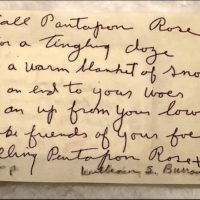

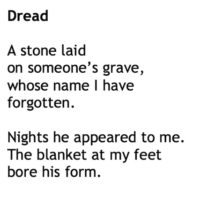
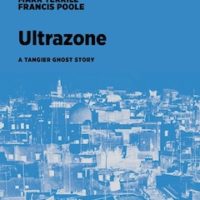

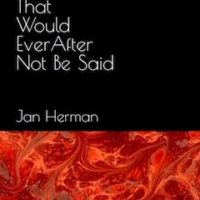
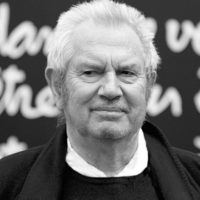
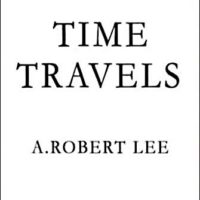
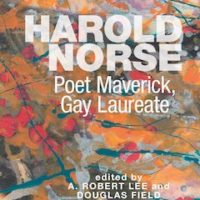





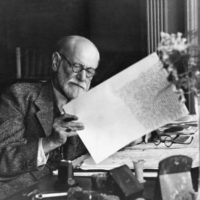
![Nelson Algren, 1962 [Photo: Steve Deutch]](https://www.artsjournal.com/herman/wp/wp-content/uploads/2014/03/Nelson-Algren-1962-Stephen-Deutch-copy-200x200.jpg)
